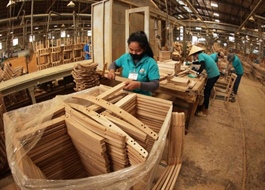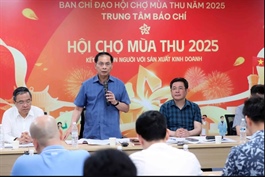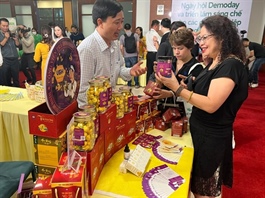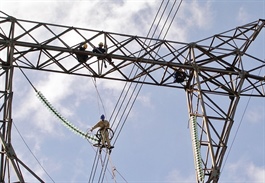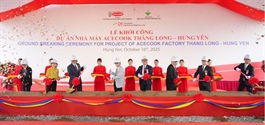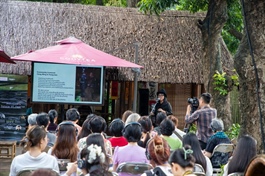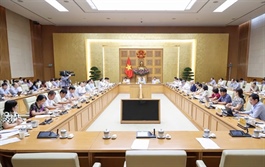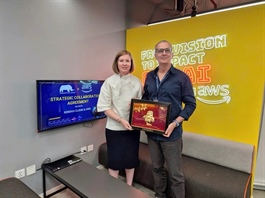Turning seafood by-products into billion-dollar industry
Turning seafood by-products into billion-dollar industry
Việt Nam, a top seafood exporter, is turning by-products into high-value goods to boost sustainability, profits, and the circular economy.
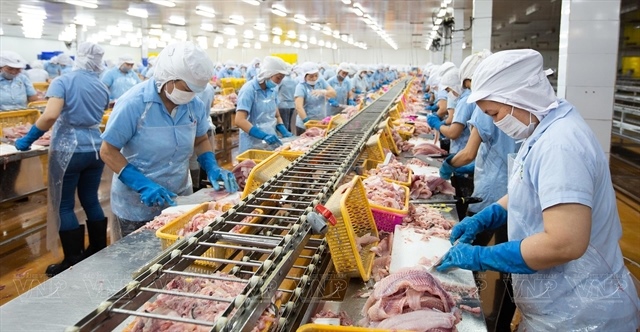
Inside Navico’s pangasius factory in Việt Nam. Experts said turning by-products into resources requires treating them as a strategic industry rather than leaving it to the spontaneous market. — VNA/VNS Photo |
Việt Nam, one of the world’s leading producers and exporters of seafood, is exploring ways to transform seafood by-products into value-added products, boosting the sustainability and profitability of the sector while contributing to a circular economy.
In HCM City, several enterprises have successfully tapped into this potential. Nguyễn Thành Lộc, director of Phuc Loc Co Ltd, in Tân Hải ward, said the company purchased about 60 tonnes of by-products daily from fishing vessels and factories to produce 4,000–5,000 tonnes of fishmeal annually, generating revenues of VNĐ72–90 billion (US$3–3.9 million).
“With additional capital and technology, we could increase protein content to 64 per cent and reduce imports by 140,000 tonnes of fishmeal each year,” he added.
Meanwhile, Tu Hai Co Ltd in Phước Thắng ward has begun exporting cleaned and dried fish bones to Japan at $10 per kilogram, yielding VNĐ10–12 billion annually.
“Demand is high, but supply is limited. It looks like the beginning of a promising new business,” said Đào Quốc Tuần, CEO of Tu Hai Co Ltd.
On a larger scale, the Southern Research Institute for Marine Fisheries utilises mixed crab species to produce canned crab paste and chitosan powder – a raw material for healthcare and agriculture – which is sold at up to $1,000 per kilogram.
Beyond industrial applications, seafood by-products are being transformed into artistic tourist souvenirs. Restaurants and processing facilities generate tonnes of shells nightly.
Hai Lan Co Ltd in Bà Rịa ward collects and recycles shells into souvenirs, artwork and jewellery, with items selling for between VNĐ40,000 and VNĐ20 million each.
Recently, the company reportedly signed a memorandum of understanding with OSB Investment and Technology JSC – Alibaba’s authorised agent in Việt Nam – to market its shell-based products on Alibaba’s e-commerce platform, expanding their global reach.
Environmental awareness and creativity are also inspiring young people. Nguyễn Lê Minh Châu, a student at Vũng Tàu High School, submitted a model “Workshop for Handmade Shell Products in a Beach-themed Coffee Shop” to the Bà Rịa–Vũng Tàu Seafood Innovation Contest. The concept allows visitors to create their own shell-based items in a workshop setting while enjoying drinks in a space decorated with appealing shells.
Support in policy, capital and technology
According to forecasts from the agriculture and environment sector, in the coming years, shrimp heads alone could provide around 490,000 tonnes of food products, while pangasius offcuts and stomachs could provide 100,000 tonnes, and fish oil could provide 150,000 tonnes.
Shrimp shells could yield 146,000 tonnes of animal feed, while fish heads, bones and entrails could supply another 900,000 tonnes annually.
Other by-products – such as shrimp shells and fish skin or swim bladders – could be processed into high-value items for pharmaceuticals, cosmetics and other industries.
By 2030, shrimp by-products are projected to reach 650,000 tonnes, worth $80–100 million, and pangasius 1.3 million tonnes, valued at over $500 million.
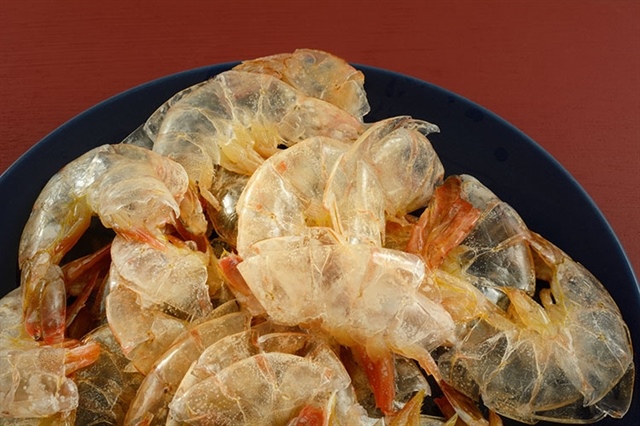
Inside Navico’s pangasius factory in Việt Nam. Experts said turning by-products into resources requires treating them as a strategic industry rather than leaving it to the spontaneous market. — VNA/VNS Photo |
Phạm Thị Na, deputy director of the HCM City Department of Agriculture and Environment, noted that processing by-products could generate tens of thousands of jobs, enhance Việt Nam’s seafood reputation, and ease pressure on the environment due to food processing waste.
Phạm Quốc Huy, director of the Southern Research Institute for Marine Fisheries, emphasised that turning by-products into resources would require treating them as a strategic industry rather than leaving it to the spontaneous market.
Beyond fishmeal and fish oil, global trends now include extracting peptides and enzymes, and producing biodegradable materials and packaging from shrimp shells and fish skin.
Supportive policies, green financing, and stronger collaboration among businesses, scientists, and authorities could turn seafood waste into “blue gold”, boosting Việt Nam’s marine economy, protecting oceans and raising the global profile of its seafood industry.
Currently, seafood by-products – mainly shrimp shells, crab shells, fish skin, bones and organs – amount to around one million tonnes per year, with over 90 per cent in solid form. Improper disposal can lead to environmental pollution, especially in tropical regions.
Currently, the processing value of these by-products is approximately $275 million per year, significantly lower than the estimated potential of $4-5 billion.
- 13:28 20/10/2025




